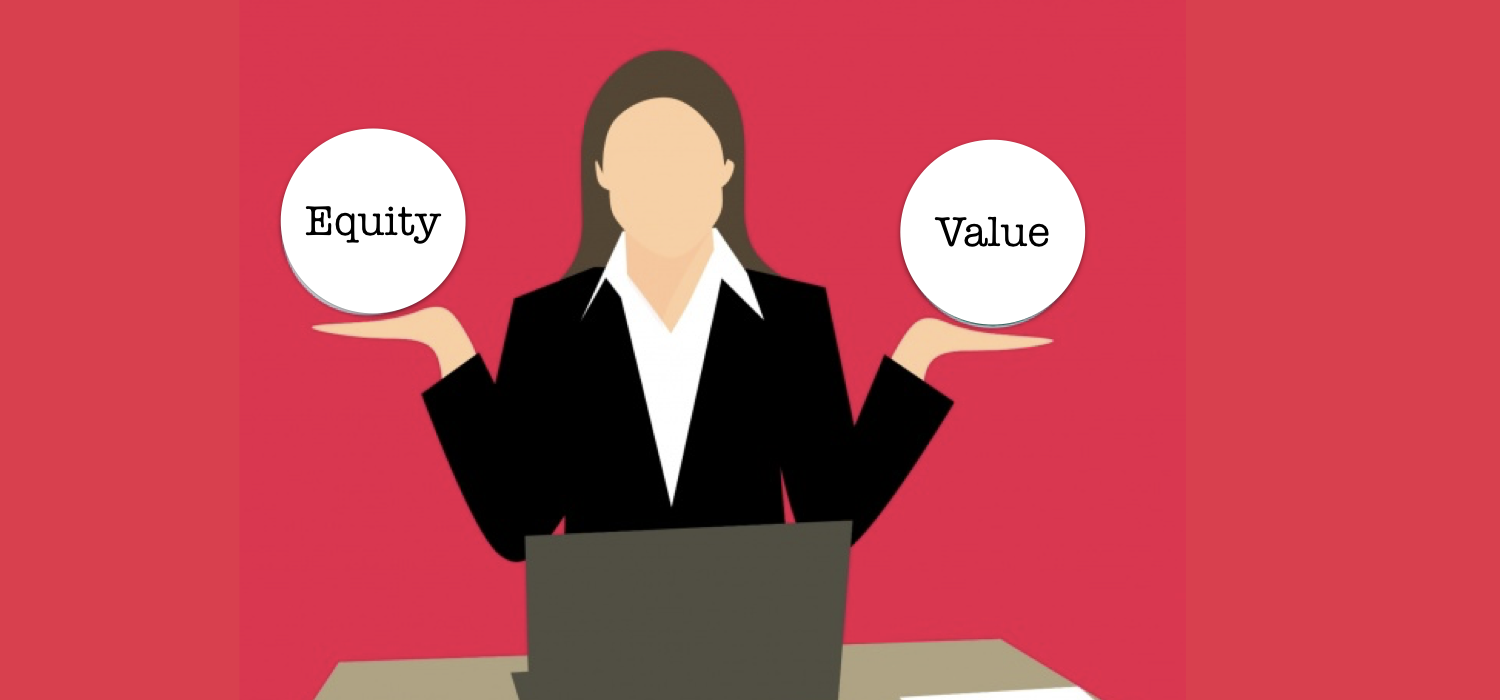Millions of older homeowners are unaware of their hidden wealth as pandemic savings dwindle and inflation surges.
Continue readingThe hidden casualties of inflation
The cost of unprecedented economic stimulus is inflation and older Americans and retirees are often its unseen casualties…
Continue readingSenior housing wealth grows as inflation surges
We are likely headed toward an era of historic inflation in the United States. Not the news one wants, especially if they’re retired. However, there’s one safe haven for millions of senior homeowners; their home.
Continue readingThe question every older homeowner should be asking…today
Washington Post: “Should you tap into your home equity to fund your retirement?”
It’s perhaps the most important question every older homeowner could be asking. Should you tap into your home equity to fund your retirement? That question is the title of a recent column written by David Mount in the Washington Post. Mount presents a fair and factual representation of reverse mortgages. However, we will also examine his approach as to when one may be appropriate.
[read more]
“The strong stock market and a new perspective from the coronavirus pandemic may have you considering home equity as a way to accelerate a move in retirement”, writes Mount. An interesting point and one that leads me to reflect on the present state of both the real estate and equities markets. Much like we rush to buy replacement wiper blades during the first week of the rainy season, homeowners considering a reverse mortgage often wait until it’s too late. In some cases that means they no longer qualify lacking the required proceeds to pay off their mortgage. In other instances, they can no longer make a monthly withdrawal from their investment accounts due to stock market losses. In a nutshell- a proactive strategy will always outperform a reactive one.
Mounts cautions if one is to use their home equity for retirement “it should be done at the right time and for the right reasons”. Mount notes three of the most popular options for tapping into home equity. The first two are to refinance your existing mortgage to lower your payments or taking out a HELOC or home equity line of credit. Each will only improve a homeowner’s cash flow position modestly not to mention the inherent risks with variable rate HELOCs and payment shock after the initial draw period ends. The third option Mount presents is a reverse mortgage.
When should an older homeowner look to their home’s equity? “Overall, using home equity toward retirement works best for those with a high level of equity in their home,” Mount writes. That position makes sense for someone taking out a line of credit or a cash-out refinance but with one caveat: their cash flow must support the new loan. Does that mean seniors with sizable savings should only consider these typical home equity extraction methods? Not necessarily. And that’s where Mr. Mount and I would disagree when he writes, “Reverse mortgages are a viable option for those with limited access to funds and a sizable amount of equity in their home.”
Let’s unpack that statement. Should homeowners with adequate funds steer clear of a reverse mortgage as a rule of thumb? It really depends on their unique situation. Perhaps some moderately affluent homeowners and their advisors not only see the benefit of a reverse mortgage but are using it as part of a larger financial strategy. “As with any big financial decision, you should work with a financial adviser to create a plan and strategize scenarios that will help you stay financially independent into and through retirement.” Now that’s a statement I can agree with.
Read the Washington Post column
[/read]
Should they take their winnings off the table?
Taking their winnings off the table:
Are seniors over-invested in their home?
Let’s say in January 80% of your assets were invested in hotel and entertainment stocks that made you a healthy chunk of change. For sake of argument, let’s say these stocks consistently out-performed your expectations. Then came March and the arrival of the novel coronavirus. If you found yourself holding these positions after the pandemic broke you probably got clobbered in the market.
Much like being over-invested in one or two companies, many are over-invested in their home. That’s a point Hometap Equity Partners CEO & Cofounder Jeffrey Glass made in a last month’s RMD virtual event HEQ- the future of home equity in retirement. If the bulk of a client’s wealth was tied up in one stock a financial professional is likely to strongly recommend diversification. “If that were a stock, and you had 60-90% of your net worth tied up in one stock, no matter how much you love that stock, any financial advisor would tell you you’re over-concentrated, particularly since you’re over-concentrated in an asset that’s illiquid,” While Glass’ was speaking in the context of alternate equity products, his analogy nevertheless rings true.
So what about housing wealth?
[read more]
To be frank, home equity is an illusion that exists on paper until it is separated from the home. You can almost still hear the echoes of excited voices twelve years ago boasting of their newfound ‘wealth’ or equity they ‘made’. We all remember how that story ends.
The point is the equity, or value if you prefer’ in the bricks and mortar of a home is neither safe nor guaranteed to be there tomorrow. That leaves older homeowners with two choices to extract equity: sell and ‘right-size’ into a new home at today’s prices or separate a portion of the home’s value and remain in place. The former requires one to uproot themselves and later a tool to extract cash from the roof over their heads. So let’s stop here, right now for just a moment and ask ourselves this question. Will home values continue to rise in 2021? To be honest, we don’t know. There may be indicators of a correction but perhaps we should recall the lyric’s from Blood Sweat & Tears hit ‘Spinning Wheel’ ..” What goes up must come down. Spinning wheel got to go ‘round”. And go ‘round does the housing market go. It’s a cyclical market that ebbs and flows. Many experts see employment as the lynchpin of future real estate values.
All of which leads us to our original question. Should older homeowners be taking some of their winnings or equity off the table? Perhaps. The two hurdles that must be cleared are the fear and misunderstanding surrounding reverse mortgages, and the upfront costs to diversify their ‘equity holdings’. Before diving into the intricacies of how a HECM works it’s best, to begin with, the broad brush strokes. “Do you plan on living in your home for the foreseeable future?” And the bonus question, “Do you believe home values will continue to go up in the next year or two or go down?”. Even if they’re not reading the Wall Street Journal each week most homeowners are generally aware of the real estate market’s performance and more importantly, they’re old enough to remember earlier housing downturns.
So what are their options? You know them well. Besides selling there’s the favorite recommendation of media ‘experts’- a HELOC. Great, but now they’ve got a monthly payment in addition to their existing mortgage if they have one. Sell? The fact is most prefer to age in place? That leaves us with the question- how would you leverage your home’s values, take some of the risks of a fall in home values off the table, and not be saddled with a payment? Correct me if I’m wrong, but that seems to point in one direction- a reverse mortgage. Even more so a Home Equity Conversion Mortgage with a line of credit.
Equity makes great conversation over coffee but it’s meaningless and most importantly vulnerable until it’s separated from the home.
[/read]
Lifelong Mortgages: The New Norm?
Younger borrowers are taking longer mortgages- then comes a reverse?
When debt is king and aging populations are exploding across developed countries, more are finding themselves with a mortgage throughout their adult years. Lifelong mortgages may soon become the rule rather than the exception. Overall baby boomers are not doing too badly when compared to younger generations, but they have challenges as well. Fannie Mae reports over 51% of baby boomers are still paying a mortgage. CNBC columnist Bob Pisani writes that 45% of baby boomers born between the years 1946 to 1964 have zero savings for retirement…
While we can debate the exact percentages one trend is emerging. Fewer older American will be paying off their homes before retirement, or for that matter before they die. That should come as no surprise as only…
What they’re not telling you
HECM originators: the silent objection for many older homeowners is using up their home equity
When you sit down with a potential reverse mortgage borrower, you know they didn’t invite you over for a cup of coffee. Before they clicked on your ad, picked up the phone or sent in a card there was an underlying need or concern that motivated them. The most successful originators don’t dive into how a Home Equity Conversion Mortgage works but instead ask them what they would like to accomplish. A wise approach that cuts through the minutia of the loan and isolates underlying motivations. Despite their intentions, there may be one silent objection they are not sharing- their apprehension in using home equity…
.
Their Nest Egg is Gone. Now What?
 We looked at some of the country’s oldest retirees, who found their callings and joy late in life and want to keep working for pleasure as well as profit.
We looked at some of the country’s oldest retirees, who found their callings and joy late in life and want to keep working for pleasure as well as profit.
But what happens when you’ve saved and planned for retirement — and then the rug beneath your feet morphs into a magic carpet of debt and disintegrates?
That’s what happened to one Boomer couple, now 66 and 71, who had all their ducks in a row for a rosy retirement. A triple threat (serial job loss, serious illness, and the financial markets collapse) combined to effectively eliminate their savings.
 To repair the damage, the couple invited their son and his family to move in while they tried to sell their house and move to a more affordable location. Too bad they didn’t know about or perhaps didn’t consider, a reverse mortgage, which might have been the ticket to a smoother ride through the rapids. Now, even with the husband once again employed, they are saddled with massive credit card debt.
To repair the damage, the couple invited their son and his family to move in while they tried to sell their house and move to a more affordable location. Too bad they didn’t know about or perhaps didn’t consider, a reverse mortgage, which might have been the ticket to a smoother ride through the rapids. Now, even with the husband once again employed, they are saddled with massive credit card debt.
Some financial pundits hold the opinion that owning a house itself is the culprit, and advise seniors to pay off their mortgage and rent in retirement. Yet this suggestion undercuts everything many older adults have imagined and planned for their entire lives: living out their days secure in the knowledge that their longtime home will see them to the end of life in comfort and security.
Clearly, housing is the overarching expense in retirement as it is in our younger years, as confirmed by a recent Employee Benefit Research Institute report. Yet it’s not the only concern — or expense. While paying for a roof over their heads remains a constant 40-45 percent chunk of expenses in retirement, medical costs rise sharply. By age 90, the report states, “health care expenses account for more than 20 percent of the households’ entire budgets.” End-of-life health care costs can be astounding, even with Medicare: those in the 95th percentile of health care spending in 2011 spent almost $30,000, while those in the 25th percentile spent less than $1000.
Preparation and adaptation are key. Whether or not a dream job is on the cards for a senior, knowing they will be able to remain in their home is essential. Awareness of the evolving reverse mortgage option and how this might benefit their nest egg is smart recourse when creating a retirement planning toolkit — especially since the mass affluent are already using HECMs strategically to support their portfolios in a down market.
Is it Equity or Value? That is the Question
Common explanations that may create confusion
A wise person once said, “Words are free. It’s how you use them that may cost you.”At some point in our careers, most of us have been guilty misusing keywords when describing the features and benefits of the federally-insured reverse mortgage. I most certainly have done so, even on this show. As our collective gasp fades let ’s examine some of the common HECM vocabulary that is often used freely but is inaccurate. After all this helps each of us communicate clearly and accurately without eroding the trust of borrowers and other professionals.
It’s all about value. The most misused term in our industry is equity. After all, the formal and proper name for the federally-insured reverse mortgage is the Home Equity Conversion Mortgage. Seems straightforward enough but is it accurate?
Retirees Conflicted on Home Equity
Despite challenges many reluctant to tap equity in retirement
 Older American homeowners find themselves beset by a variety of retirement landmines- exploding medical costs, uncertain markets and income security. Despite these challenges, retirees remain conflicted about tapping their home equity.
Older American homeowners find themselves beset by a variety of retirement landmines- exploding medical costs, uncertain markets and income security. Despite these challenges, retirees remain conflicted about tapping their home equity.
Mortgage and financial professionals are well aware that the baby boomer generation is less adverse to mortgage debt than the generation that preceded it. A recent New York Times article cites the seismic shift of how older American’s managed mortgage debt. The Federal Reserve reports that home-secured debt held by those aged 65-74 was only 18.5 percent in 1992, 32 percent in 2004 and 42 percent in 2004 as reported by the 2013. The percentage of those holding mortgage-related debt into retirement is expected to continue to rise as an estimated of 10,000 baby boomers turn 65- each day.
Despite the widespread acceptance of leveraging debt among boomers, retirees financial needs and uncertainty about tapping into home equity remain. The conflict between the need to fund aging in place and tapping into home equity through a mortgage is addressed in Jamie Hopkins recent column in Forbes.
“American retirees are facing a laundry list of retirement challenges. The only certainty is that












